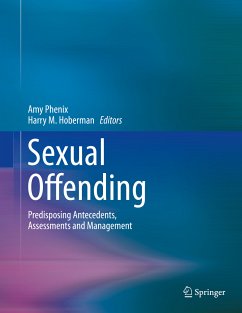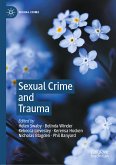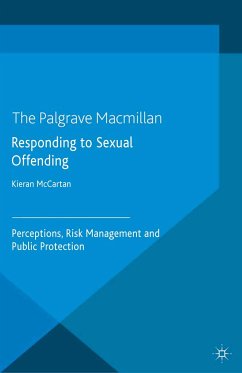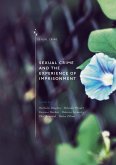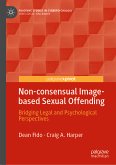This expert reference provides a broad, comprehensive review of the major domains concerning sexual offending. Beginning with a general etiological model of sexual offending, chapters follow addressing the primary predisposing conditions related to sexual offending (e.g. pedophilic, hebephilic, paraphilic rape and non-contact paraphilic disorders, hypersexuality and personality-related factors. In addition, special subgroups of sexual offenders (females, youth and the intellectually disabled) are considered. Both broad and specific perspectives on the assessment of sexual offenders are provided. Several perspectives are offered on so-called clinical evaluations of such offenders, including the central utility of structured psychological assessment approaches. A detailed chapter is provided on the principles and practices regarding the great majority of evaluations of sexual offenders that are actually forensic in nature. Considerable emphasis is focused on scientific risk assessment for sexual offending, including a novel conceptual model of risk and threat assessment. More specifically, each of the primary approaches or instruments developed for the risk assessment of future sexual offending are addressed including the "Static" risk measures, the Sex Offender Risk Appraisal Guide, forms of Structured Clinical Judgment, and varied measures of dynamic or criminogenic needs assessments. Finally, multiple aspects related to the management of sexual offenders are discussing including contemporary models of psychosocial treatments, the question of effectiveness of such treatments, biological interventions, civil commitment, circles of support and the containment approach to community management. A distinctive feature of this book is that chapters are authored by both prominent international experts and experienced; practicing professionals to best provide a breadth of useful perspective.
Amongthe topics covered:
- Pedophilic, Hebephilic, Rape Paraphilic Disorders and the variety of Non Contact sexual offending conditions
- Personality, related conditions, & their association with sexual offending: motivators and disinhibition in context.
- Disorders of hypersexuality.
- Assessments of sexual offenders, including the role of psychological testing, clinical & interview approaches, as well as forensic evaluations
- Conceptual models of risk assessment & discussion of specific static, dynamic & structured clinical risk assessment approaches
- Models of & reviews of treatment outcome with sexual offenders, including psychotherapy, psychopharmacology and castration, the containment approach, civil commitment & circles of support
- Overview of public policy issues & an evidence-based perspective on sex offender registration and residential restrictions.
This breadth of material in Sexual Offenders will help practitioners gain multiple levels of clinical insight as well as giving them up-to-date practical tools and techniques for working with this problematic class of individuals.
Dieser Download kann aus rechtlichen Gründen nur mit Rechnungsadresse in A, B, BG, CY, CZ, D, DK, EW, E, FIN, F, GR, HR, H, IRL, I, LT, L, LR, M, NL, PL, P, R, S, SLO, SK ausgeliefert werden.

